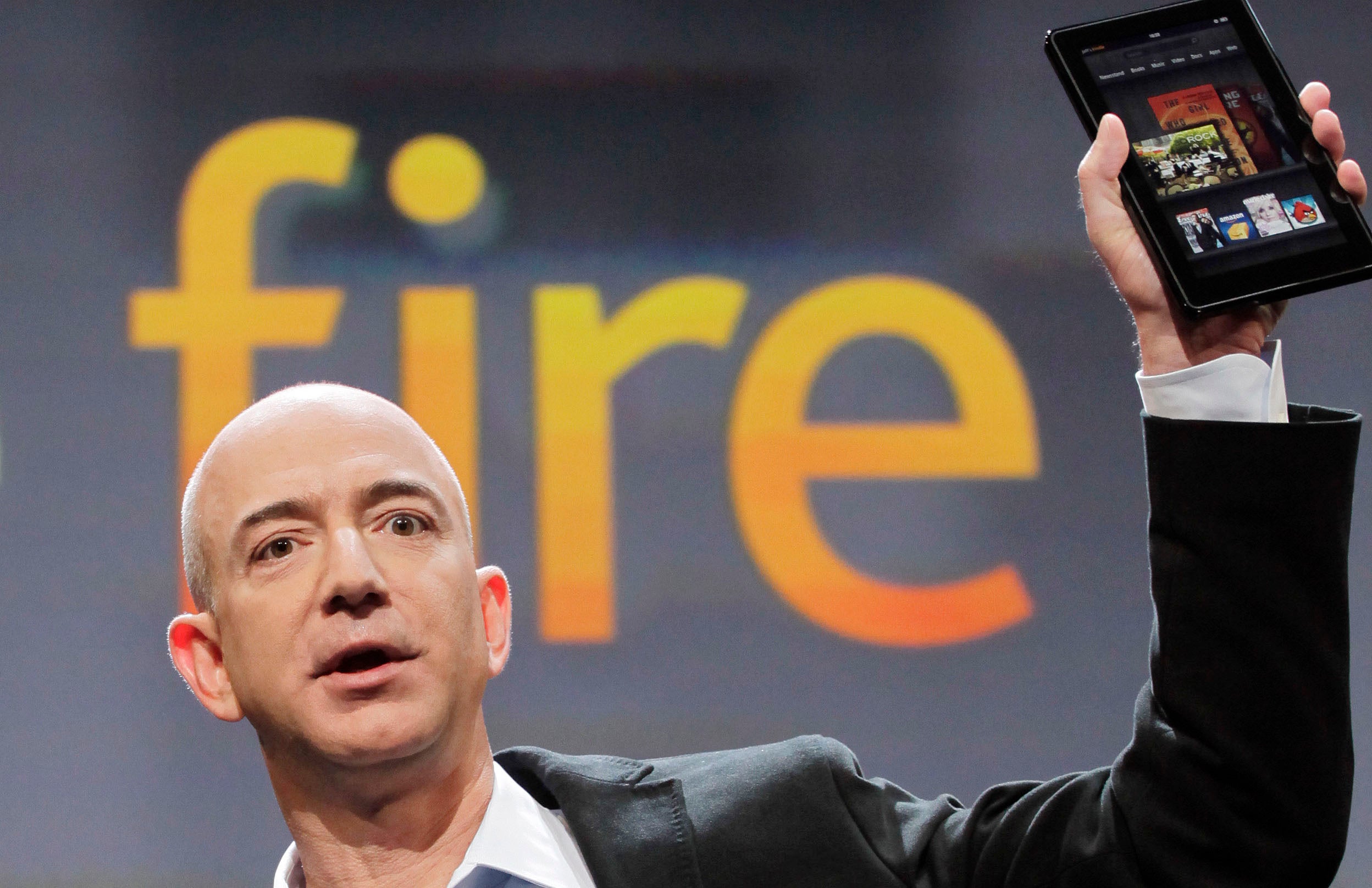What's Next: The Les Moonves Litmus Test: Nine months into the #MeToo era, the debate over Les Moonves' alleged sexual misconduct is dividing Hollywood and testing attitudes about power, forgiveness and punishment.
On Monday, the CBS board of directors allowed Moonves to remain as chairman and CEO while an outside law firm conducts an investigation into the accusations against him. Depending on who you ask, that is either a dereliction of duty on the part of the CBS board, or a sign that Hollywood may be rethinking what had mostly been a one-size-fits-all approach to bad behavior.
The Moonves affair is an inflection point for Hollywood and the #MeToo movement, industry insiders on both sides of the debate tell me. It pits those who believe in a strict, no-tolerance approach to sexual misconduct and the abuse of power against those who fear a campaign that leaves little room for nuance.
The fact that this debate is even happening marks a departure from the last nine months of the #MeToo era, when accusations of sexual misconduct resulted in relatively swift terminations for the alleged perpetrators. Despite his acknowledgment "that there were times decades ago when I may have made some women uncomfortable by making advances," Moonves' fate is by no means a foregone conclusion. | | | PACIFIC
The Agenda Good Morning. It's not just the Moonves question. The two situations are very different, but Disney's decision to fire director James Gunn from the "Guardians of the Galaxy" franchise for offensive Twitter jokes dredged up by the alt-right has "stirred debate about how Hollywood should handle transgressions made during a more anything-goes era," NYT's Brooks Barnes reports. "As the movie industry seeks to clean up its culture, how retroactively should new standards be applied?"
Bonus: The author Lee Siegel asks, "Whatever Happened to Moral Rigor?" | | Moonves vs. Redstone
Whither CBS-Viacom?
On the corporate side, the CBS board's decision to keep Les Moonves as chairman and CEO means he can continue to fight Shari Redstone's effort to unite CBS with Viacom. If Moonves is forced out, Redstone will likely be able to install a CEO who is more amenable to her plans for a merger.
Who would replace Moonves? Variety's Cynthia Littleton and Brian Steinberg have some ideas:
• "Redstone has used her voting clout to push for former Time Warner chairman Richard Parsons to join the CBS board, and now Parsons is seen as that possible temporary CEO candidate. Other candidates ... include CBS alums Nancy Tellem and Nina Tassler."
The Big Picture: "The unpredictability surrounding CBS and Viacom will make it hard for Redstone to recruit a major player — i.e., Fox Television Group chairman Dana Walden or NBC Entertainment chairman Bob Greenblatt — to permanently succeed Moonves at CBS."
The Bigger Picture: Moonves and Redstone are fighting for a relatively small empire. Moonves believes CBS is a more valuable acquisition target on its own, because it is profitable; Redstone believes CBS-Viacom is more valuable, because it is bigger. But alone or together, it's a snack-sized offering in the eyes of major tech, media and telecom players poised to survive the industry's current transition. | | Life After Les
Shari's gamble
The Big Question: Is it really in Shari Redstone's best interest to have Les Moonves gone? "The weakening of Moonves' position is not exactly good news for Redstone as an investor," Littleton and Steinberg note:
• "CBS is in danger of losing its longtime chief just when the company needs a strong operator and strategic leader most, as the broader entertainment industry is being rapidly transformed by the impact of technology and the entry of Netflix, Amazon, Apple and other tech giants into Hollywood's wheelhouse."
• "The pressure bearing down on Moonves and the threat of CBS being further destabilized by a leadership vacuum — and potential exodus of other top executives — will be a test of Redstone's ability to help guide the company out of crisis." | | Flawed Leaders
What was Moonves thinking?
In today's New York Times, Common Sense columnist James B. Stewart asks how Moonves and the CBS board could be so reckless to start a legal war with Redstone when Moonves was vulnerable to accusations of sexual misconduct:
• "CBS's board knew -- or should have known — about potential problems with Mr. Moonves's past behavior long before the news broke last week. Rumors had proliferated almost immediately after The New York Times and The New Yorker published their prizewinning exposés of the Hollywood producer Harvey Weinstein in October."
• "Nonetheless, CBS's board of directors decided to proceed with a lawsuit against the network's controlling shareholder ... In my interviews, I have found no evidence that directors even discussed Mr. Moonves's potential vulnerability before making such a momentous decision."
The Big Picture: The law firm conducting the internal investigation at CBS "will now have to ask some tough questions. One of the toughest is for Mr. Moonves, who decided to bet the company on a lawsuit when he, better than anyone, knew what skeletons were in his closet." | | Going Out
The MoviePass squeeze
MoviePass CEO Mitch Lowe told staff yesterday that the company would not offer tickets to major movies like "Mission Impossible" or "Christopher Robin," the latest sign of a trouble for a company that has borrowed millions just to keep its service running.
Bloomberg's Anousha Sakoui says the "squeeze on customers" underscores MoviePass's "desperation":
• "MoviePass ... launched on the assumption it could offer fans daily movie admissions just under $10 a month. Since the company was paying theaters full price for tickets, the cash drain was instant and unrelenting. Hoped-for deals with major studios and the largest cinemas to share the costs never materialized."
• "Lowe and lead investor Ted Farnsworth have said that they expect MoviePass to become profitable at 5 million subscribers. At the last count, the service had reached 3 million. ... The question for subscribers is how long MoviePass can go on -- and whether they'll be able to see any movies at all."
What's Next: MoviePass stock is up after the company announced a price increase for monthly passes from $9.95 to $14.95. | | The Stream
Universal Music on sale
"The chance to own a piece of the music group behind Lady Gaga and U2 could lure big tech deeper into the streaming business," my colleague Ivana Kottasová reports:
• "French conglomerate Vivendi has announced that it's willing to sell up to half of Universal Music Group, a crown jewel of its media empire that has been revived by sales of streaming music."
• "Home to influential record labels including Capitol Records, Abbey Road Studios and Def Jam Recordings, revenue from subscription and steaming products jumped up 34% at Universal Music Group in the first half of 2018."
Potential buyers are Spotify, Alibaba, Facebook, Google, Amazon, Apple and Liberty Media, though Kottasová notes that "interest could be dampened because a controlling stake is not for sale."
The Big Picture: "Like the rest of the music industry, Universal was rocked by a sharp decline in physical record sales during the 2000s. But Vivendi ... has turned it into one of its biggest and most profitable operations by focusing on streaming." | | | | |
















